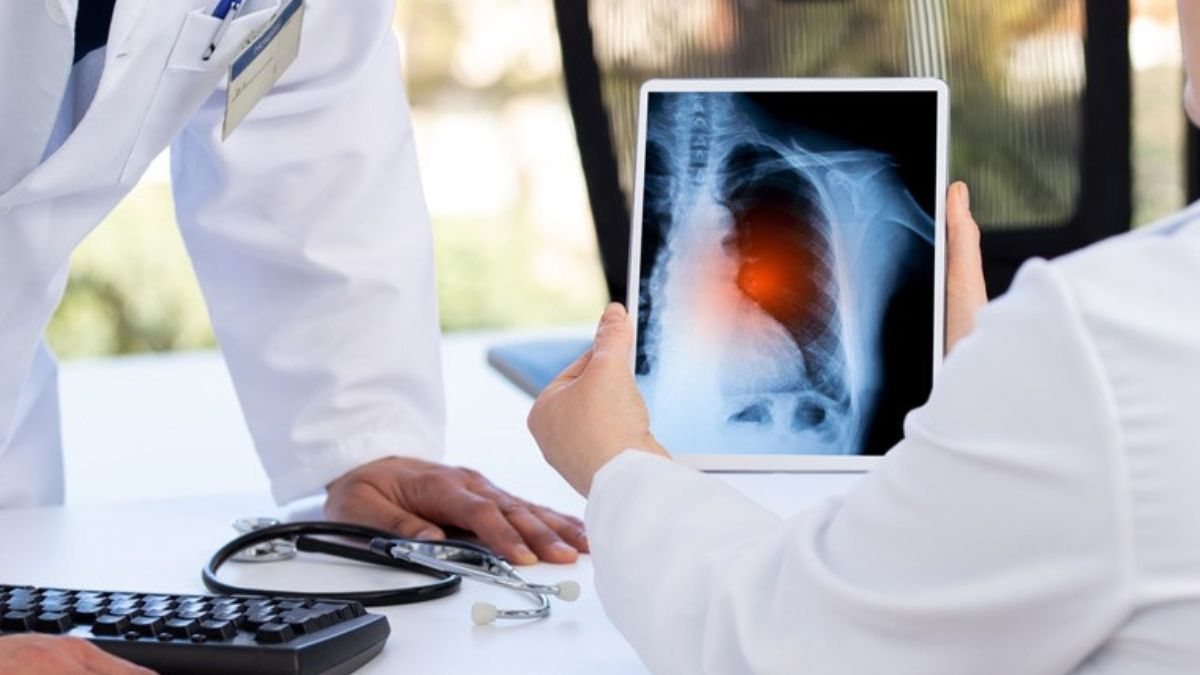World Lung Cancer Day: 7 ways that you could save yourself from getting lung cancer

Lung cancer occurs when the abnormal cells tend to grow uncontrollably in the lungs, affecting breathing and spreading to other parts of the body, explained Dr Gaurav Jaswal, consultant radiation oncologist, TGH Onco Life Cancer Centre.
The higher incidence of lung cancer cases, with roughly 50 per cent of them now occurring in non-smokers, has experts raising warning signs that should not be ignored.
Here are some prevention strategies:
Air quality management: Regularly check the Air Quality Index (AQI) before outdoor activities. Limit outdoor exercise when pollution levels are poor or severe. Avoid peak pollution times like rush hour. Wear N95 masks during high pollution periods. Use air purifiers with HEPA filters indoors, especially for the elderly and children.
Home environment improvements: For safer kitchens, install chimneys or exhaust fans. Ensure cross-ventilation by keeping windows open during cooking. Cover pots and pans to prevent fume buildup. Avoid using kerosene or firewood indoors.
General ventilation: Improve airflow throughout the home. Test for radon gas, particularly in older buildings. Reduce the use of incense sticks and mosquito coils in poorly ventilated areas.
Avoid secondhand smoke: Stay away from smoking environments at all costs. If someone is smoking nearby, move away immediately. Advocate for smoke-free homes and workplaces.
Occupational safety: Use protective masks that can filter harmful particles. Follow safety protocols in high-risk industries. Mandatory regular health monitoring for workers in mining, construction, and industrial sectors.
Lifestyle and health monitoring: Consume a diet rich in antioxidants and anti-inflammatory foods. Reduce the intake of ultra-processed foods, which studies link to 41 per cent higher cancer risk.
Regular health screenings: Annual health check-ups should be the norm for everyone, advises Dr Sachin Kumar, Director, Pulmonology and Critical Care Medicine, Sakra World Hospital, Bengaluru. Low-dose CT scans for high-risk individuals and early screening are crucial since many cases are diagnosed at advanced stages. You might not have smoked a single cigarette in your life, but still be at risk, warned Dr M A Suboor Shaherose, Consultant, Haematology, Medical Oncology, CARE Hospitals, Hyderabad. Hence, health check-ups are of paramount importance.
Signs that you cannot ignore:
Dr Rajeev Vijayakumar, HOD and Senior Consultant Medical Oncologist, Gleneagles BGS Hospital, Bengaluru, emphasises that certain symptoms should never be ignored, even in non-smokers. These include a persistent cough lasting more than three weeks. Chest pain or discomfort, shortness of breath or wheezing, unexplained weight loss, fatigue or breathlessness, and coughing up blood.
Dr Dinesh Pendharkar, Director - Sarvodaya Cancer Institute, Sarvodaya Hospital, Faridabad, said that since they think they are not at risk, non-smokers ignore a lasting cough. They dismiss breathlessness and unexplained fatigue as other early warning signs. This delays diagnosis since it advances into stages where treatment is more challenging.
Warning that lung cancer often whispers rather than shouts, Dr Debanti Banerjee, Consultant Medical Oncology, HCG Cancer Center, Kolkata, says the symptoms are frequently misattributed to seasonal infections or aging.
What is the way ahead?
The rise of lung cancer in non-smokers represents a public health crisis that demands immediate action. Dr K Thiruppathi, Senior Consultant, Pulmonology, SIMS Hospital, Chennai, emphasised that this shift challenges traditional assumptions and points to a wider range of risk factors that silently contribute to cancer development.
The solution lies in a multi-pronged approach: individual vigilance through environmental awareness and lifestyle modifications, combined with broader policy initiatives for cleaner air and stricter emissions standards. Early detection remains crucial. Catching cancer in stages 1 or 2 can mean the difference between complex treatment and long-term survival.
While not widely common in India, testing for radon in certain areas is being talked about more often. A diet rich in antioxidants and anti-inflammatory foods may offer some protection, and those with a family history or persistent respiratory symptoms should consider regular check-ups. Prevention today can make a big difference tomorrow, said Dr Vijay Karan Reddy Palkonda, HOD and Director of Oncology, Arete Hospitals.
Lung cancer is no longer exclusively a smoker's disease. By understanding these diverse risk factors and implementing comprehensive prevention strategies, we can work toward reversing this alarming trend and protecting the health of non-smokers across all age groups.
Health